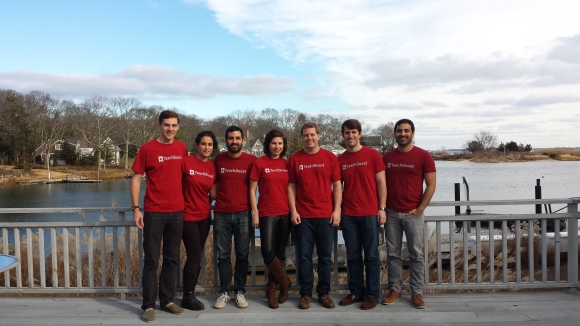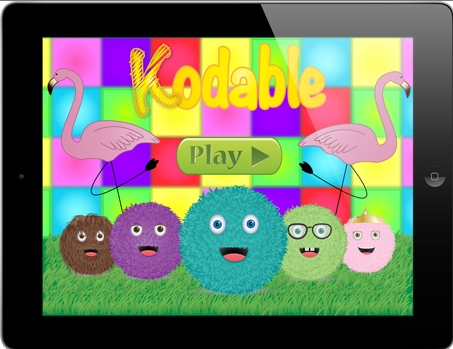A Successful Bootstrapping Journey

Upon graduating from Imagine K12’s Winter 2012 program, TeachBoostfounder and CEO, Jason DeRoner, was faced with the challenge that most early-stage founders face: spend time raising money or continue building the product?
His meetings with VCs on Sand Hill Road were unfruitful, but he did learn one thing: “I realized pretty quickly that investors who aren’t familiar with the K12 space were looking for consumer type growth and not necessarily revenue…We assumed showing a bit of revenue was our ticket to investment when really it was about hockey stick curves and big markets.” Many investors suggested that he circumvent the cumbersome process of selling to schools.
But avoiding schools is a bad way to go about building an education product. And DeRoner knew he had to get in front of principals and teachers in order for TeachBoost, an observation platform that helps schools and districts differentiate PD for educators, to make the greatest impact. So he decided to return to his hometown in New York City in June 2012 and bootstrap his way to a self-sustaining business.
Doubling Down on the Customer
Many startups, especially in education, strive for the grassroots upsell (sometimes referred to as the “Yammer model”) where early adopters influence higher decision-makers to purchase the product. This model has so far worked for TeachBoost, whose target customers are principals. As more schools in a district sign up, district officials create and manage professional learning communities across schools using the tool. From an initial 8 pilot schools in 2011-2012, TeachBoost has grown its customer base to hundreds of schools in NYC and other districts (including six KIPP regions) across 17 states. And yes, these are paying customers.
“The intra-district mentoring and coaching that TeachBoost enables is very powerful” for increasing exposure, according to Jillian Lubow, the Director of Marketing and Educational Partnerships who formerly worked at Wireless Generation and Virtual Nerd. “We’ve seen principals literally drag their colleagues to our booth at various events to talk about how great the product is and exactly how TeachBoost is addressing a real problem for them.”
TeachBoost also turned to partners for help to expand its network and outreach. This summer, it worked with the Arkansas-based Principal Centerto launch the Instructional Leadership Challenge. The idea was based on the notion that school leaders want to be in the classroom more often but need tools, skills and time to make that a reality.
Through the Challenge, the Principal Center offered a variety of PD sessions to the selected participants and TeachBoost complemented that with free product training and licenses to their full product offering. The results were impressive. In just 2 months 550 schools participated, conducting hundreds of observations–with one school racking up an impressive 110 observations.
“This type of collaboration is a fantastic way to build national exposure while keeping with our customer-focused strategy and supporting school leaders who are looking to improve their teacher evaluation process,” said Lubow. “They immediately see the value, which makes them extremely willing to pay and share with others.”
All Hands on Deck
Another aspect that keeps the team customer-focused is that no one is 100% focused on sales. TeachBoost embodies a hybrid-role approach where everyone on the seven-member team spends time with both the product and customer, fostering collaboration and creativity.
The decision to have everyone spend time with schools established a deeply customer-centric culture, says DeRoner. “We spoke with principals day in and day out and the schools we worked with from the beginning became our advisory board. We ran prototypes and worked side-by-side to refine the product. That level of engagement drove this authentic customer evangelism that has fueled our growth. It is that authentic word-of-mouth marketing from trusted members of our principals’ networks that drives sales and adoptions in schools.”
Adds Lubow: “We have a very clear vision on how we can help schools and that sincere focus comes across very strong,” she adds. I’m not sure if we’d have that luxury if we had raised capital from the start and had to answer to multiple stakeholders.”
Overcoming the Bootstrapping Blues
But bootstrapping is not without its challenges. DeRoner says trying to run a company solely off revenue is “a bit like playing chicken with [financial] runway.” Lubow admits that her sales efforts are hampered by lack of resources: “It would be ideal to meet all my customers in person, but since that is not an option, we’ve developed some creative ways to train and connect with our customers.”
On the marketing side, there is no budget for PR, events, or videos, so all those efforts take longer. Lubow adds, “Given our customer base, it would be great to have one or two more folks on the team supporting marketing so that we can deepen our level of engagement with teachers.” Teacher engagement is a critical piece given the stigma around teacher observations and evaluations.
Despite limited resources, TeachBoost has built a network not only in the U.S. but overseas as well. In October, it received the GREAT Tech Award, an international startup competition organized by UK Trade & Investment that will help bring their platform to U.K. schools.
Looking ahead, DeRoner is thinking about giving Sand Hill a second go. “The thinking was not to avoid fundraising forever, but rather spend the first year or so focused on product and customers,” says DeRoner. “We’ve been able to grow and sustain a team of 7 and could continue to bootstrap, but now that our fundamentals are in place we’re thinking about ways to strategically step on the gas pedal, and that could include outside capital.”
(This article was also published by my friends over at EdSurge.)














